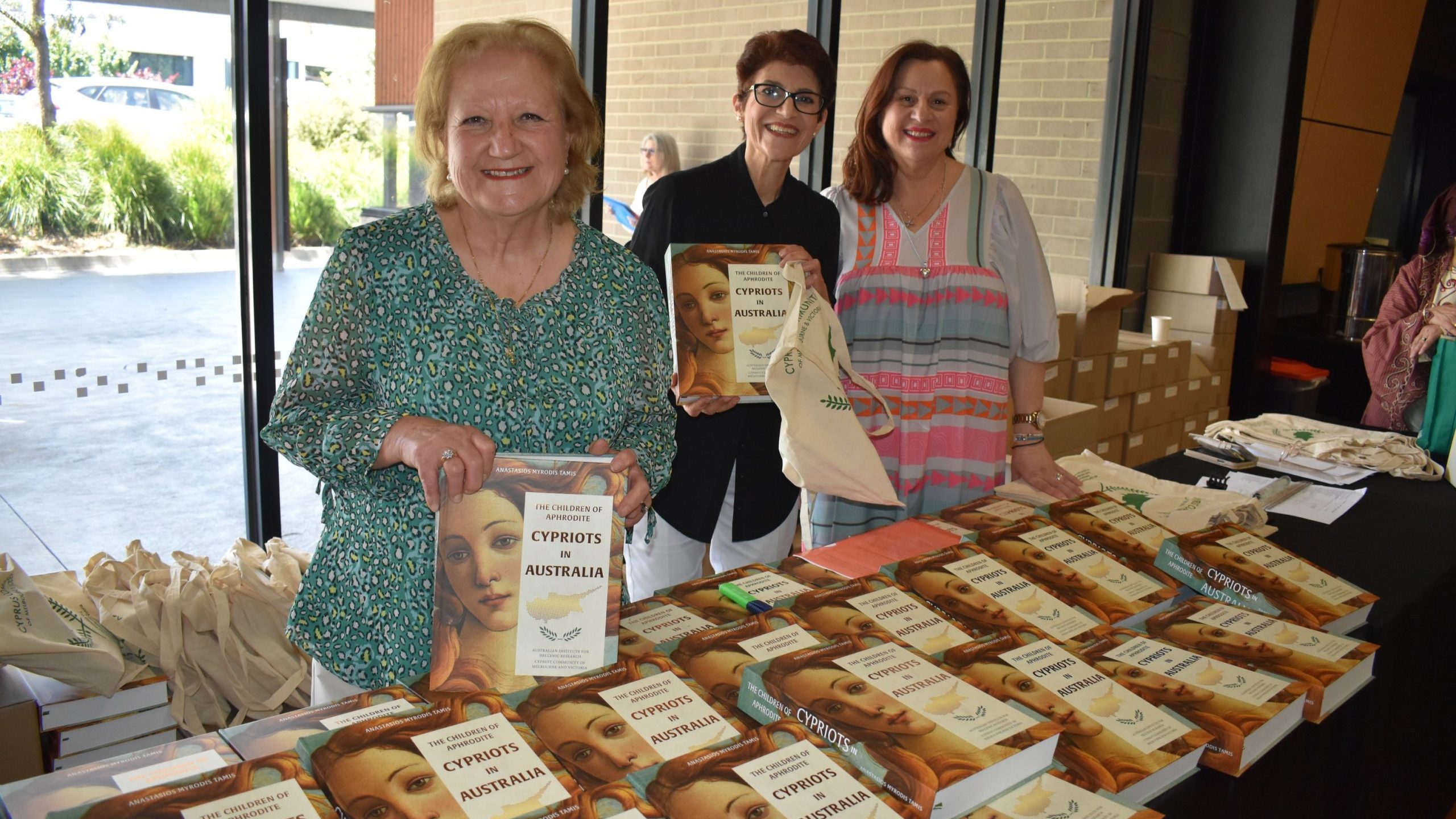By Mary Sinanidis
Professor Anastasios Tamis’ book, Children of Aphrodite: Story of Cypriots in Australia, begins with two Cypriots – Michailidis and Dimitriadis – convening at a family house on Cardamon Street, Carlton, to discuss ways to support their struggling compatriots. That is how the creation of the Community of Cyprus in Australia began on Sunday, November 1, 1931. Within years, a number of Cypriot clubs began to sprout.
Anecdotes such as this were shared during the book launch at Alphington Grammar School in Melbourne on Sunday.
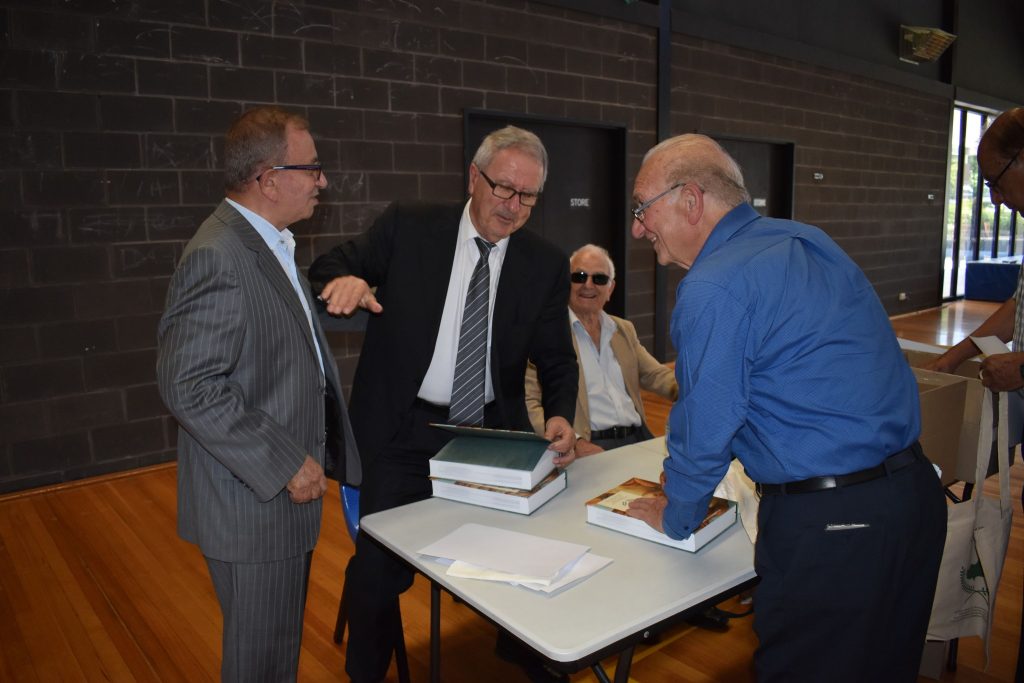
Two years in the making, the book is a tribute to the first generation of Greek Cypriots who “sacrificed their own welfare for their children,” said Professor Tamis, a pioneer in sociolinguistic studies on the Greek language in Australia and New Zealand, president of the Australian Institute of Macedonian Studies and executive director of the National Centre for Hellenic Studies and Research at La Trobe.
The large volume celebrates the 90th anniversary of the birth of the Cypriot Community of Melbourne and Victoria. It also monitors, investigates, documents, analyses and preserves the history of Cypriots in Australia, which currently number 80,000 people.
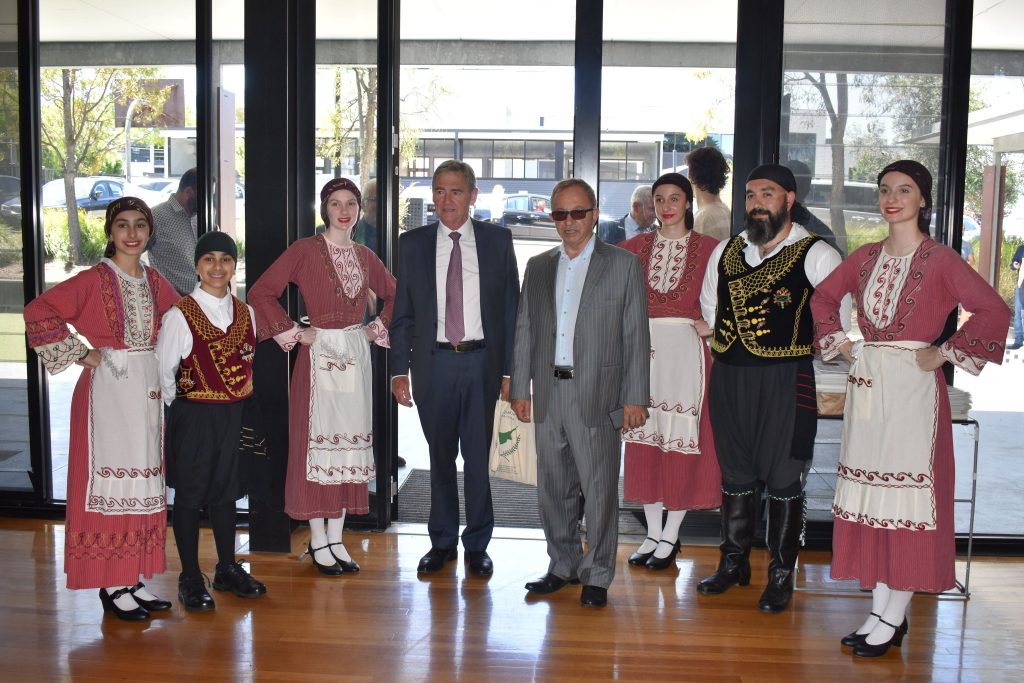
“Without past we have no memories, no knowledge, no present, no future,” Professor Tamis said, taking the microphone from Cypriot Australian actress Andrea Demetriades, the MC for the occasion.
Guests were plentiful, including former Victorian premier John Brumby AO, Cypriot President Theo Theophanous and his daughter Kath Theophanous MP, High Commissioner of Cyprus Antonis Sammoutis, former Cypriot Community president Stelios Angelodimou, Greek Community of Melbourne President Bill Papastergiadis, Victorian politician, John Pandazopoulos, Darebin Mayor Julie Williams, Meribek Councillor Lambros Tapinos, Councillor Emily Dimitriadis and so many more. It was also prologued by Annita Demetriou, President of Cypriot Parliament, appearing from a video wall from Cyprus to highlight the contribution of the Cypriot diaspora in Australia.
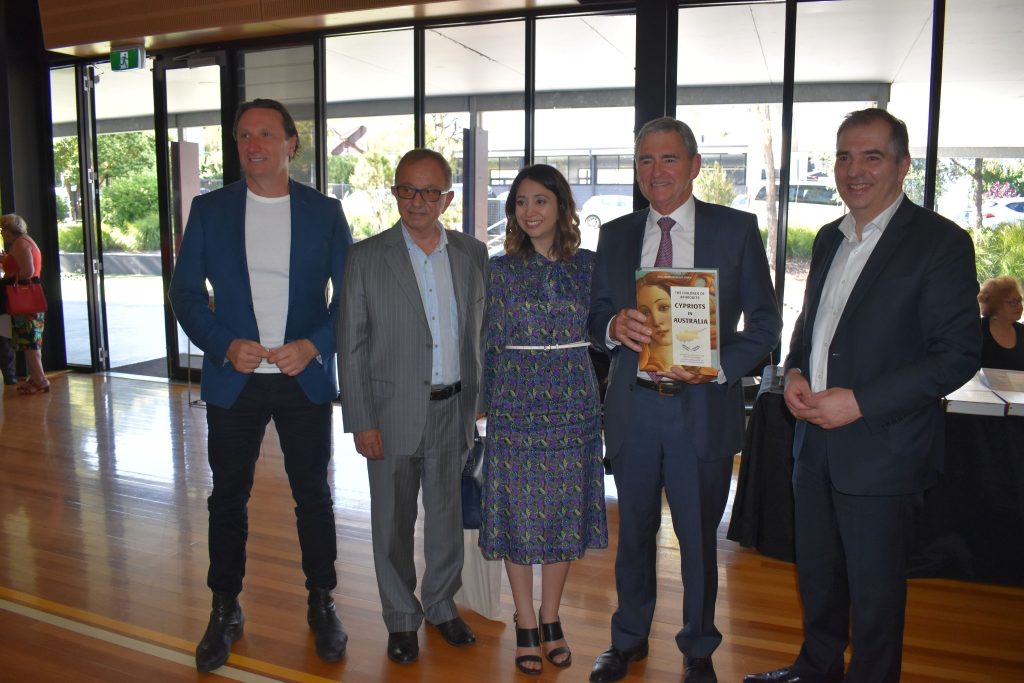
The book tells the stories of many prominent Cypriot Australians, but it is the entire community which it represents.
“Regardless of whether your names are in the book, there are names of people who were beside you, who were known to you: your parents, ancestors neighbours… They were heroes who fought in the war in 1945,” Professor Tamis said, adding the book gives people the opportunity to “locate and recognise the sacrifices and contributions of hundreds of Cypriot patriots and family men, who came as children and sacrificed their lives, leaving valuable successors in society”.
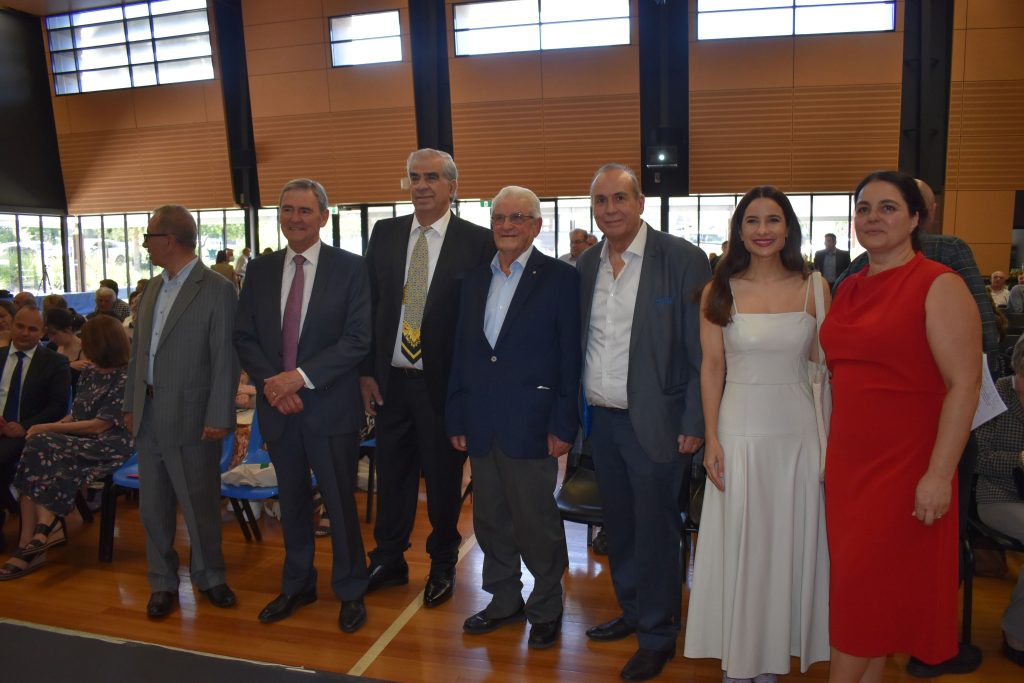
Launching the book, Mr Brumby said: “I am particularly pleased to be here with the Cypriot community today because, as Tamis shows in the book, the Cypriot story in Australia is not the same as many other migrant stories. It has many similarities in the hardships and challenges, but it has many differences as well.”
He pointed to Cyprus being a British colony and how, unlike Greek migration, the movement of Cypriots was from one British colony to another.
“And when Greeks from the mainland arrived, the Cypriots were able to initiate them into the strange way we do things in Australia,” Mr Brumby said.
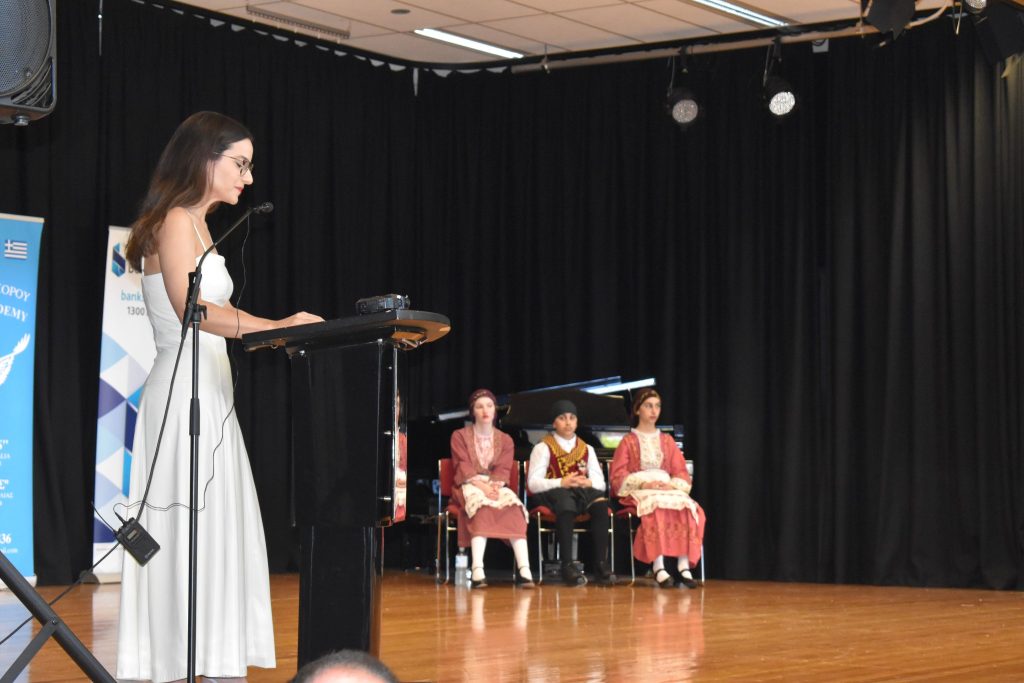
Actress Andrea Demetriades was the MC at the event.
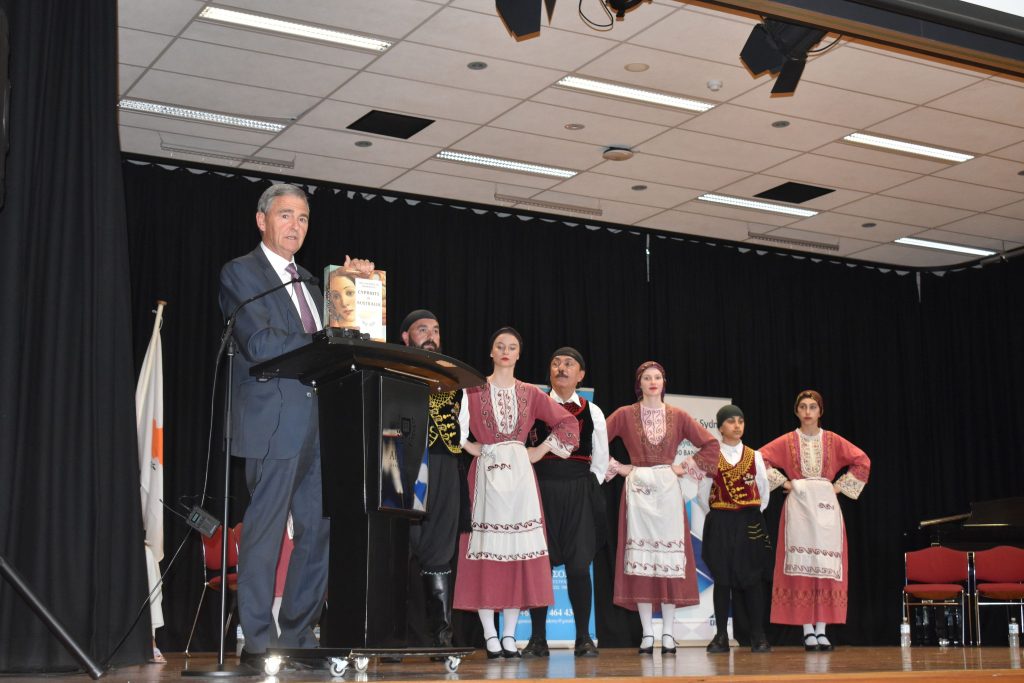
“Without the Cypriot community already in place it would have been even harder from the successive waves of Greek immigrants to settle here.”
Former Cypriot Community leader Peter Yiannoudes, who came to Australia as a 20-year-old longing to work in the movies, can vouch for that.
“We knew English due to being a British colony and came to Australia as citizens,” Mr Yiannoudes told The Greek Herald. “Without the Cypriot community already in place it would have been even harder for the successive waves of Greek immigrants to settle here. Don’t forget the first interpreters at court cases were Cypriots.”

Mr Sammoutis pointed to the importance of this book as a first systematic historical documentation of the Cypriot Community. Apart from showing the growth of the Cypriot community of Australia, the book also documents how the Cypriot Australian community was influenced by turbulence in Cyprus, commencing from the start of the colonial era, the years following 1931, the struggle for liberation in the 1950s, the first Turkish invasion in 1964, the catastrophic junta, Turkish invasions in July and August 1973, the refugee crisis and the economic crisis of 2009-2018. Mr Sammoutis said Cypriots should not forget their political roots.
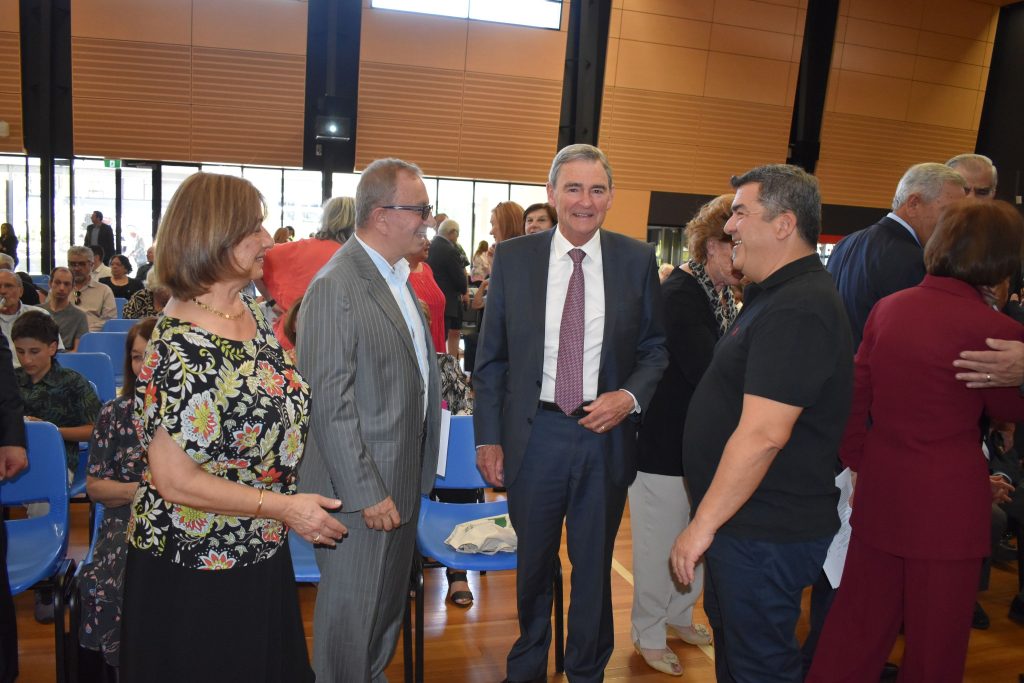
“The Cypriot diaspora of Australia has been struggling to support our leadership back in Cyprus in every station,” he said, while also referring to Turkish Cypriots who had for centuries enjoyed “a peaceful co-existence” with Greeks.
Mr Brumby said: “The story [the book] tells is really relevant to all Australians. When I was premier of Victoria many years ago, I said that diversity was Australia’s greatest strength.”
While it may be relevant to all Australians, it was specifically written bearing future generations in mind.
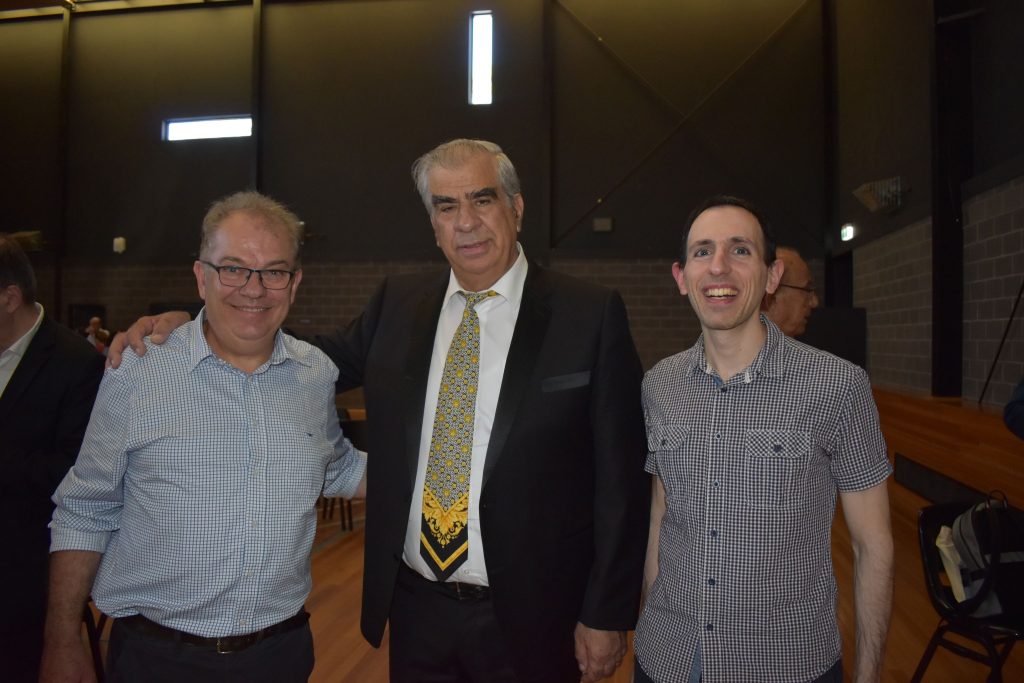
Stelios Angelodimou (middle)
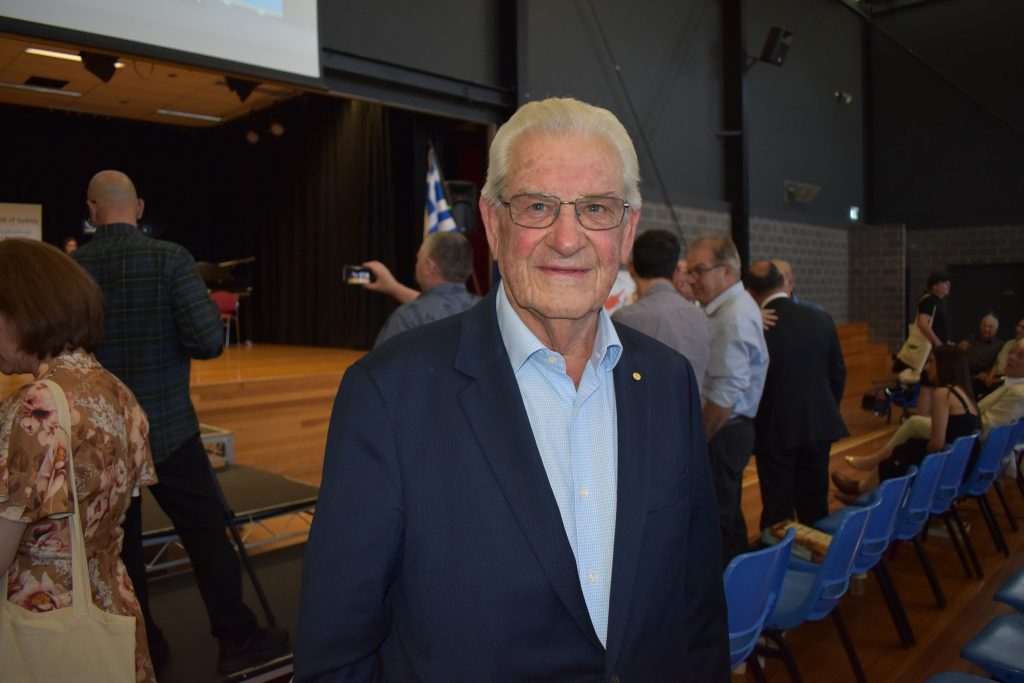
“The book was not written for us or our parents, it was written for your children,” Professor Tamis said.
Indeed, the generational wave was evident as young Cypriots sought their parents on a photo wall.
Christopher Michaelidis and his wife, Beverly, looked at a photo featuring his dad, Michalakis Michaelidis, publisher and editor of Pyrsos newspaper. The son has “fond memories” of the family newspaper on Little Lonsdale Street between Russell and Exhibition streets. His father was “forever working as most Greeks do” and had come from Cyprus in 1949.
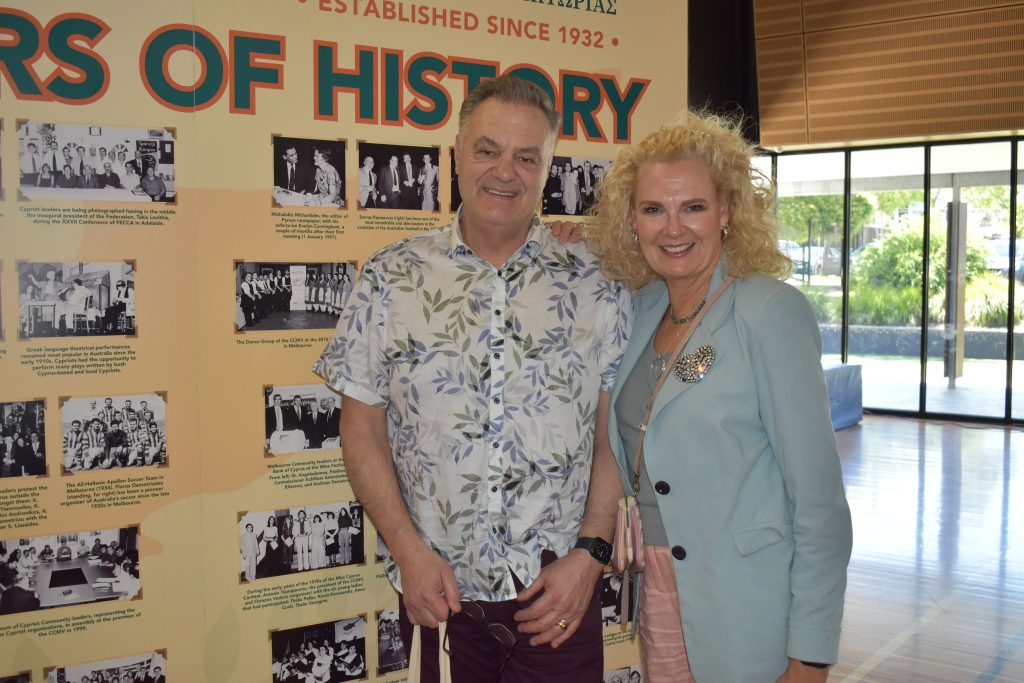
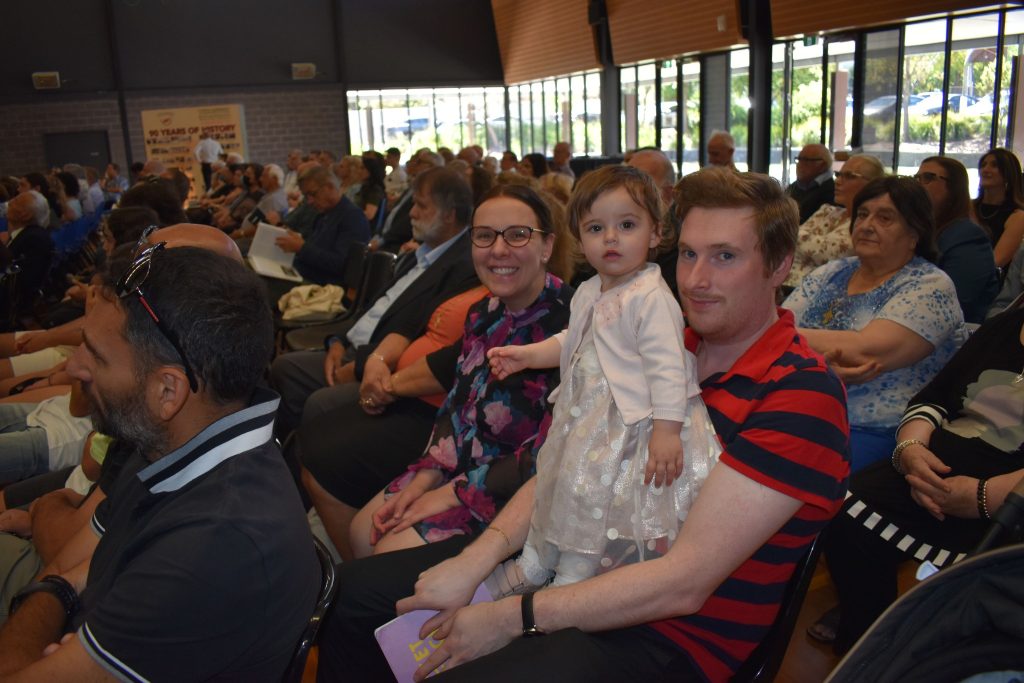
Cr Emily Dimitriadis and her family at the book launch.
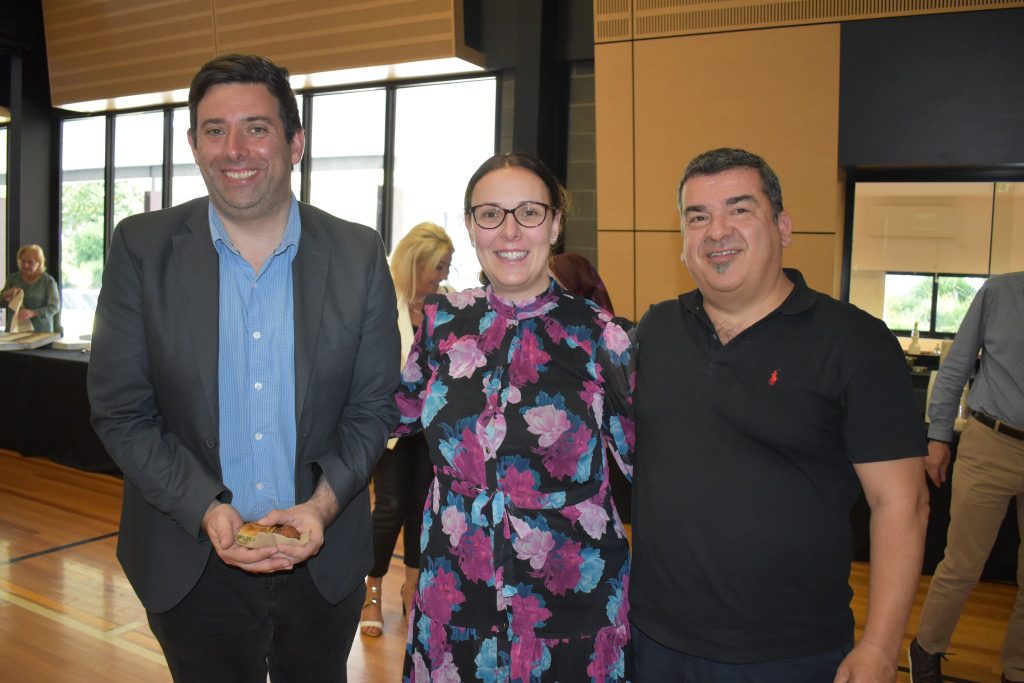
“Within two years he was operating his business,” Mr Michaelidis told The Greek Herald. “He went to have four children and two of us are still in printing.”
And the story goes on with their children and those that follow.
Mr Papastergiadis said: “For me, personally, it’s a story of hope to progress.”
For more info about the book, contact anastasios.tamis@aims.edu.au

